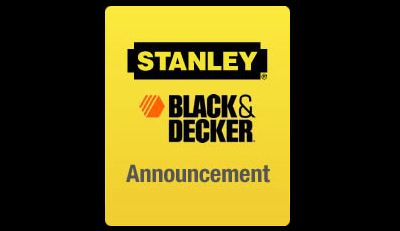
The Stanley Works acquired Black & Decker today, creating a company with an estimated worth of $8.4 billion.
The deal took shape as an all-stock transaction where Stanley ponied up $4.5 billion for a majority share in B&D.
Stanley, of New Britain, Conn., and Black & Decker of Towson, Md., produce tools and construction materials. They are among the most widely recognized brands in their industry. Stanley makes the Bostitch line of nailers, and B&D is the parent company of DeWalt and Porter-Cable, brands familiar to woodworkers and builders alike.
“Stanley and Black & Decker together will have a comprehensive offering across all major tool categories and greater resources to support continued expansion of our combined security and industrial businesses,” John F. Lundgren, Stanley’s chairman and chief executive, said in a statement.
Nolan D. Archibald, Black & Decker’s chairman and chief executive, said the deal would result in $350 million in cost savings.
The deal, which was approved by the boards of directors of both companies, is expected to close in the first half of 2010. The next step is to put this before the shareholders and regulators.
In a prepared statement, Mr. Lundgren said, “This is a unique opportunity to bring together two great companies, each with first-rate brands, and provide enhanced opportunities to generate superior returns as we build on this new, larger platform. Stanley and Black & Decker together will have a comprehensive offering across all major tool categories and greater resources to support continued expansion of our combined security and industrial businesses. The transaction is expected to create tremendous value for shareholders of both companies through the realization of significant cost synergies, operating margin expansion and enhanced growth opportunities. Joining these two companies together creates a powerful engine for growth, both as markets around the world recover and over the long-term.”
It’s been a tough year for companies in the construction and tool market. Consolidations and mergers can create strength, but they can also cause dificulties. The purchase of Delta and Porter-Cable by B&D from Pentair in 2004 resulted in hiccups with warehousing and distribution. For Connecticut, the home state of Stanley and The Taunton Press, it appears to be good news as a local company with a long history bolsters its size. Some local business leaders were optimistic about the news.
We have no word yet on whether the merger will result in any changes in the current lineup of tools or other products offered by these companies. But as tool news goes, this is one big mashup of global giants.

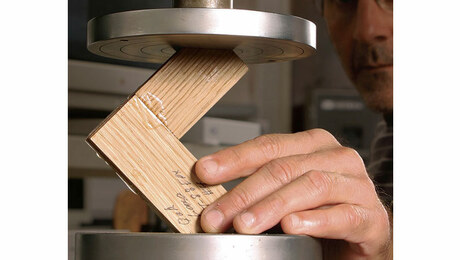

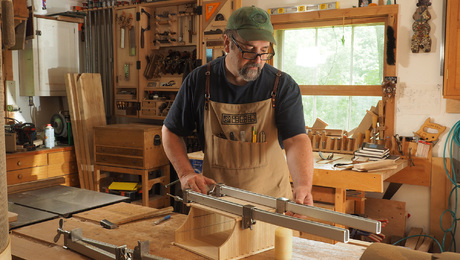
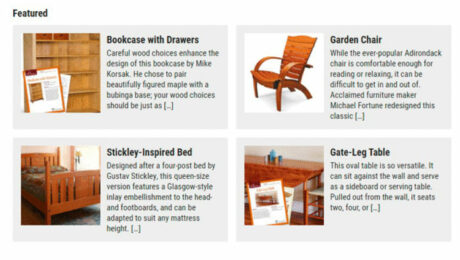


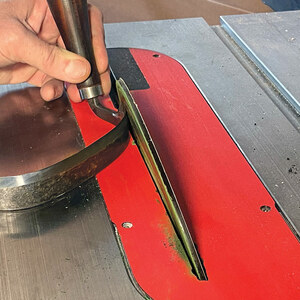
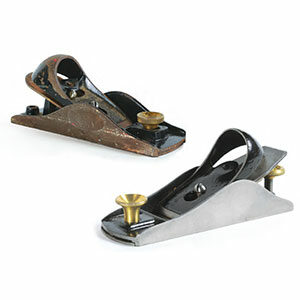
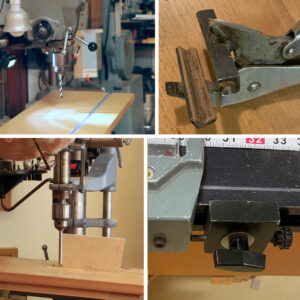
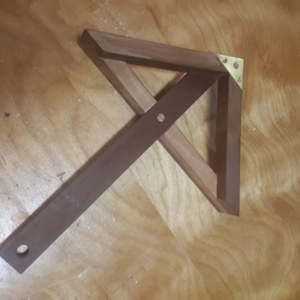












Comments
WOW!! Now they must be too big to fail. Did you notice Mr. Lundgren's comments were all about maximizing shareholder wealth with no bow to meeting customer's expectations. The hands that built America are, to some, simple sheets of paper to be traded back and forth for profit. Where are we headed?
Now where in this statement is there any mention of the quality of the product. There in is the problem. American companies are only concerned with the profit numbers. I think this company will turn out large numbers of tools and products of low quality. Both of these names will sink as woodworkers lose favor with poor tools produced with only profit in mind.
Unfortunately, I tend to agree with the previous two comments. Not necessarily about quality issues, but about "planned obsolescence" issues. I own numerous Stanley, Bostich, Porter-Cable and Delta tools and am generally pleased with them all. My biggest disappointment was when the Delta Shopmaster 18v battery powered tool line was cut off so i couldn't get replacement batteries. They are great tools but without service, what good are they? (I had the batteries rebuilt and they worke fine).
That said, who doesn't have a few prewar Stanley planes or chisels and doesn't wish the company would go back to producing those tools of that quality again? I love my no. 3s, no. 4, no. 5, no.605, 9 1/2, etc planes.
Isn't this the company who planned on changing their address to the Bahama's so they would not have to pay income taxes ... not bought a tool from them since ...
The only way to maximize shareholder wealth in the long run is to make products that customers will buy. It is not a zero sum game but a win-win approach that will yield the highest shareholder value. A company that is selfish (produces low quality tools) will eventually fail. A company that has self-interest (maximizing shareholder value) will produce superior products.
I look forward to see which path the new Stanley follows.
Look folks they're talking about cost savings, brands, returns and growth, not tools or quality. This is corporate policy all the way and corporations put money into three main catagories:
1) executives
2) audit trails/financial reporting
3) brand building
I predict we'll see some really slick comercials about some really mediocre tools!
Anyone know why the pre-war Stanley tools are better than the modern versions? Corporate policy. It's the reason why a brand new No.4 has plastic knobs and totes.
I own quite a few Stanley 'Pre-War' tools, a 2006 Stanley No.4 and a lie-Nielsen No.164. Lie-Nielson is a better tool than the bunch. The new premium Stanley planes ain't close either.
I'll try to keep an open mind, but a definitely a closed wallet for the time being. . .
I'm glad to see that this latest merger is seen as likely a bad thing for woodworkers(at least on this page). This merger will reduce even further the competition in the tool and hardware industries. I would like to see an investigative report on what this merger means for competition and the quality of new tools. It seems that there are very few innovative tool companies that make quality products left. I am sure there are other companies that still compete (somewhat) with the big-name companies, for instance Powermatic (a pretty big name in its own right). I am not familiar with the way the industry is going in general, having worked at a Museum the last 5 years. It would be interesting to have some information about the state of the tool industry in America. For instance, are there any tools that are still made in America? Rockwell/Delta used to make all their tools here. Not only did they make great tools, they provided local employment.
Alan Russell has it right. If the new organization fails to make products the rest of us will buy, then the stockholders will suffer a loss in their investment. That is the market place at work, unless one ascribes to recent government interference in the market by both Republican and Democratic administrations. I buy Lie-Nielsen when I can, very much enjoying the quality and visiting their shop in maine.
Log in or create an account to post a comment.
Sign up Log in